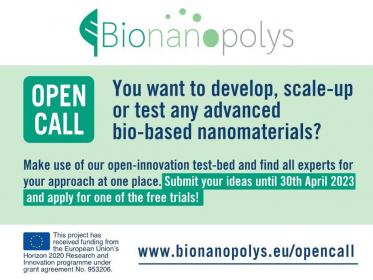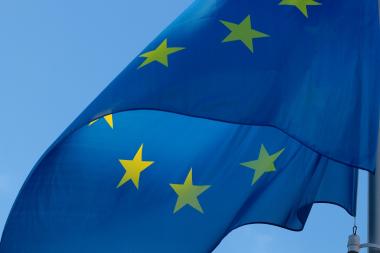STFI: Bionanopolis Open Call to support companies
The international association that will manage the Single-Entry-Point (SEP) of the BIONANOPOLYS project has been formally constituted and will be able to support companies across the European Union in the market introduction of bionanomaterials through technical, legal, regulatory, safety, economic and financial support services.
The SEP was established as an AISBL (non-profit entity) on 17 February 2023 in the framework of the European project BIONANOPOLYS, funded by the Horizon 2020 programme. The technical director of ITENE and coordinator of this project, Carmen Sánchez, is the president of this association in which representatives of other project partners also act as directors. Specifically, the CTP (Centre Technique du Papier) from France; CIDAUT (Fundación para la Investigación y Desarrollo en Transporte y Energía), from Spain; CENTI (Centre for Nanotechnology and Smart Materials), from Portugal, and the law firm Gil & Robles - San Bartolome & Associés, from Luxembourg.
The BIONANOPOLYS SEP will reduce the risks and barriers to the commercial exploitation of bio-based materials and polymeric bionanocomposites with nanotechnology and accelerate market penetration and innovation processes. SMEs, large companies, and potential customers who are users of the BIONANOPOLYS OITB (Open Innovation Test Bed) will be able to access the services offered by the project partners through this entity, which will act as a one-stop shop, at affordable costs and conditions.
The test bed consists of 14 enhanced pilot plants and complementary services to support technological and commercial breakthroughs. Collaboration between all the partners that make up BIONANOPOLYS and access through the SEP allows joint access to all the services offered by the partners and helps to drive collaborative open innovation.
Call for access to the BIONANOPOLYS OITB
The SEP and the project partners will be in charge of evaluating the projects submitted to the BIONANOPOLYS platform once the open call launched last February to select five projects from different European countries that will be able to access its services free of charge to develop, test or scale-up bionanomaterials in the BIONANOPOLYS OITB closes.
Companies wishing to access the services to develop or test nanomaterials can submit their applications until 30 April.
The BIONANOPOLYS test bed could benefit companies involved in the production of biopolymers, cellulose paper, nonwovens, foams, or coatings, as well as the packaging, agriculture, food, cosmetics, pharmaceuticals, hygiene, textiles and 3D printing sectors.
Sächsisches Textilforschungsinstitut e.V. (STFI)








